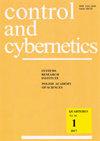供应链管理中的委托代理问题——基于仿真的框架
Q4 Engineering
引用次数: 0
摘要
摘要本研究涉及社会经济研究中一个众所周知的现象,被称为代理理论:委托-代理问题。在供应链管理领域中,当供应商存在违约不确定性时,代理人被指定代表公司所有者即委托人行事。每个参与者都是利益导向的,但他们的目标函数和承担风险的程度可能会有很大的不同,导致代理的决策在委托人的结果方面不是最优的。本文提出了一个多周期供应链仿真模型,该模型可用于进行供应链的优化和代理与被代理之间的比较。建议的框架允许根据行业区分模型参数化,特别是无法交付最终产品的后果、保持安全库存的成本或供应商交付失败的不确定性。作为参与者的目标函数,我们考虑了基于预期利润的指标和考虑了期间方差的措施。我们发现,如果代理人的激励制度选择不正确,代理人的行为可能偏离委托人的最优。我们还提出了一个统一玩家目标的解决方案。最近的COVID-19大流行放大了此类研究的重要性。由于全球封锁,许多公司不得不限制生产能力,根据准时制生产战略,之前的安全库存水平很低。本文章由计算机程序翻译,如有差异,请以英文原文为准。
The principal-agent problem in supply chain management – the simulation based framework
Abstract This research deals with a phenomenon well-known in socio-economic studies and referred to as the Agency Theory: the principal-agent problem. The agent is designated to act on behalf of the company owner, i.e., the principal, in the domain of supply chain management in the face of a supplier’s default uncertainty. Each of the players is gain-oriented, but their objective functions and the degree of risk-bearing may significantly differ, leading to an agent’s decisions not being optimal in terms of the principal’s outcome. This article proposes a multi-period supply chain simulation model that can be used to perform a supply chain optimization and comparison between the agent and the principal. The proposed framework allows for differentiating the model parametrization depending on the industry, in particular the consequences of the inability to deliver the end product, costs of keeping safety stocks, or the uncertainty regarding the suppliers’ delivery failure. As players’ objective functions, we consider expected profit-based indicators and measures taking the inter-period variance into account. We find that the agent’s actions may diverge from the principal’s optimum if the agent’s incentive system is not selected correctly. We also propose a solution that unifies the goals of the players. The recent COVID-19 pandemic amplifies the importance of such research. Many companies had to limit production capacities due to global lockdowns and, per the JIT production strategy, the prior safety stock levels were low.
求助全文
通过发布文献求助,成功后即可免费获取论文全文。
去求助
来源期刊

Control and Cybernetics
工程技术-计算机:控制论
CiteScore
0.50
自引率
0.00%
发文量
0
期刊介绍:
The field of interest covers general concepts, theories, methods and techniques associated with analysis, modelling, control and management in various systems (e.g. technological, economic, ecological, social). The journal is particularly interested in results in the following areas of research:
Systems and control theory:
general systems theory,
optimal cotrol,
optimization theory,
data analysis, learning, artificial intelligence,
modelling & identification,
game theory, multicriteria optimisation, decision and negotiation methods,
soft approaches: stochastic and fuzzy methods,
computer science,
 求助内容:
求助内容: 应助结果提醒方式:
应助结果提醒方式:


